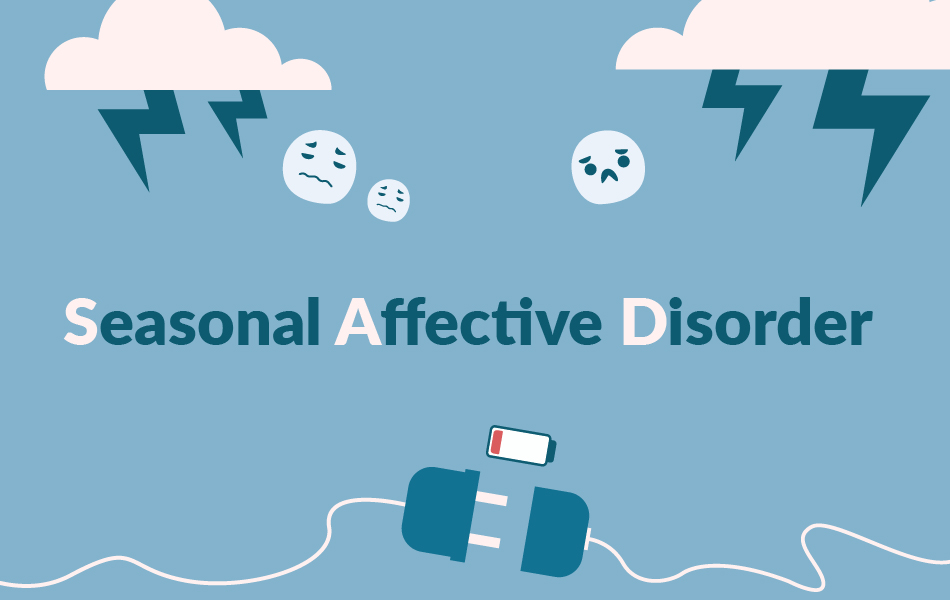
Mental health and heart disease
November 23, 2022
What You Need to Know About Holiday Blues
November 25, 2022On October 10th we celebrate mental health day, to shed light on mental health
It’s likely that you know someone that is currently struggling with mental health conditions. We all know someone in our inner circle that can benefit from a mental health care professional’s help.
Mental health day is dedicated to increasing public awareness and education about mental health problems worldwide. Additionally, it is also to reduce the social stigma attached to mental health issues and rather to celebrate the recoveries from mental health problems, and help those in need receive treatment.
Due to the many misconceptions surrounding mental health, people often deal with it in silence and do not seek treatment for their conditions. Mental health awareness initiatives seek to increase the understanding of mental health struggles and ensure access to treatment and healthcare for those in need.
The initiative to raise awareness about mental health conditions is an important part of society to improve the understanding of the struggles and improve access to healthcare for those who need it.

Whether or not someone struggles with mental health, society needs to understand the impact that mental health has on an individual's daily life. Mental health day provides recognition and education about the reality of living with a mental health condition and encourages those struggling to seek help or find a supportive network.
Even though it can make life feel difficult, it doesn't have to stop someone from living a fulfilling life. Educating society about these conditions can improve the support and help of someone who is dealing with mental health problems.
If you continue reading, you will find out the causes and symptoms of mental health problems and might be able to help someone you know who struggles with a mental health problem.
The symptoms and causes of mental health problems
Depending on the type of mental health condition, the symptoms and causes can vary. Still, they affect emotions, thoughts, and behaviours. Here are a few common symptoms and causes of mental health problems:
Signs and symptoms
- Consistency of sad feelings
- Confusion or lack of concentration
- Constant fears and worries
- Constant feelings of guilt
- Frequent mood swings of highs and lows
- Withdrawal from social life and activities
- Frequent tiredness and low energies
- Sleeping too much or too little
- Detachment from reality
- Paranoia or hallucinations
- Incapability to cope with daily challenges and stress
- Changes in appetite
- Suicidal thoughts
Causes:
- Feeling neglected
- Social isolation and loneliness
- Discrimination and stigma such as racism
- Social disadvantage, poverty and debt
- Grief
- Chronic stress
- Long-term physical health conditions
- Losing a job or unemployment
- Homelessness or an unhealthy environment
- Bullying or domestic violence
- Trauma
- Work environment
- Lack of sleep, and
- Unhealthy diet
Poor mental health can have a variety of causes. Although different people are affected by certain things differently, it does not mean there aren't any treatments or support that can help them. As you read on, you'll find many ways to take care of your mental health.

Tips on caring for mental well-being
Now that we know that having positive mental well-being is essential. However, it is also important to seek help if you're struggling with your mental health. Below are some techniques you can use to take care of your mental health, although not every method will work for everyone.
Also, note that these don't represent a cure for mental health problems. They're to help with maintaining positive mental well-being. Now let's take a look at some ways that you can take care of your mental health:
Tip 1: Seek help when needed
Seeking help from a professional or someone you're close to is the first step to taking care of your mental well-being when you are struggling. Talking to someone you trust or seeking treatment from a medical professional can be very helpful in recovery and when you need support.
Tip 2: Recognise the signs and symptoms
Recognising the signs when something is wrong is another way of looking after your mental well-being. Even though it is normal to have bad days now and again, knowing the symptoms of declining mental health can help you take action when needed.
Additionally, when noting down your feelings and experiences can also help to identify if your mental health is declining.
Tip 3: Speak about it
Speaking to someone about your emotions helps to maintain positive mental health, even though it may not always be easy to do so. In fact, it also helps you to cope better with challenges and feel supported by others.
Tip 4: Take care of your physical well-being
There is a connection between physical and mental health; taking care of one often helps maintain the other. Keeping yourself physically active can improve your mental well-being and boost your moods.
With this said, try to make time to get active, even if it is just a walk, a jog, or a trip to the gym. On the other hand, even a small amount of exercise can help make you feel better with a boost in confidence and mood.
Tip 5: Keep a regular sleep routine
Poor mental health can impact a sleeping pattern, whether you sleep too little or too much. A good sleeping routine can improve your mental and physical health.
It is best to switch off electronic devices such as a TV or to stay away from social media before climbing into bed as it helps to stimulate a calm environment without distractions. When you do struggle to sleep, try to do a light stretch or breathing exercise to reach a calming effect that can stimulate sleep.
Tip 6: Meditation and breathing
There are several ways that can help you to maintain positive mental well-being, like meditation and breathing techniques. Practising these techniques can help to calm the mind by decreasing stress or anxiety levels. Additionally, they can help with managing depression and enhance your mental health.
Tip 7: Maintain a healthy diet
A poor diet can affect your physical health, which in turn affects your mental health. It is important to nourish your body in a healthy manner. Good nutrition improves your mood and helps you feel better physically.
Tip 8: Stay connected and Socialise
It's important to have a strong and healthy relationship with others. Having good social support from family and friends can help to reduce stress and anxiety. Different types of social connections are great for improving your mental well-being and can reduce depression.
Tip 9: Be kind to yourself
Withholding on to so many responsibilities in life can sometimes be challenging to make time for yourself. However, taking time for some self-care can help to reduce feelings of stress and anxiety and lift your moods.
Try to take some time aside to relax or do activities that you love doing. You can also treat yourself to a nice meal or do something entirely for your own enjoyment.
Tip 10: Learn something new
Learning a new activity, like a skill or a hobby, can help boost your confidence and self-esteem. Additionally, you will feel a new sense of purpose which helps you to connect with others that can boost your mental well-being.
Tip 11: Set goals and priorities
Decide what you must get done now and what can wait; this way, you can create a good routine and make some time for self-care and relaxation. Feeling overwhelmed or taking on too much is a good reason to learn to say "no" to new tasks and requests.
Be mindful about what you've been able to accomplish and what you haven't at the end of the day. Setting goals and priorities can help boost your mental well-being by making enough time to complete tasks at your pace.
Acting on mental health is beneficial for maintaining healthy and positive mental well-being. With good mental health, you will be able to deal with your emotions in a positive way and feel at peace and happy. Additionally, you will be able to deal with stress and life challenges more positively and healthily with reduced anxiety.
The celebration of mental health day helps to promote awareness in society about mental health issues. This day reminds the people who struggle with mental health that they're not alone and can overcome the challenges with the right support.
Understanding mental health grows and encourages people to seek proper help and treatment. When a person feels too overwhelmed with stress or anxiety or experiences any of the symptoms mentioned above, seeking help is the most practical step toward positive mental well-being.

At Zwaverstream clinic, we approach mental health treatment to help the needs of every person to feel restored and meet life's challenges with renewed confidence.
We offer a variety of therapeutic methods and treatments that helps to guide our patients on their journey of recovery and wellness of the mind and body to result in a long-term change.
The specialists at Zwaverstream clinic have decades of experience in ensuring that our patients are given the best treatment according to their needs. We offer treatments and support for those who struggle with depression, anxiety, PTSD, chronic stress, bipolar and even challenging struggles such as a divorce or the loss of someone close to you.





